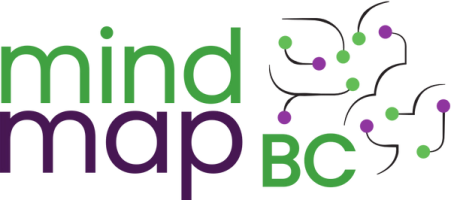Summary
Relationship counselling
 Peer Support
Peer SupportIndividual counselling
FNHA
LGBQ+ Affirming
Trans Affirming
Online resource
Three Points Counselling Group offers online individual counselling services and couples counselling services. We are also a partnered provider with FNHA for counselling services.
The focus is on thoughts, behaviours, and emotions. Three Points Counselling values connection as the basis for change and growth in an individual. We believe in taking a strengths based approach to empower each client. The process may look different for each person, but it starts with connecting human-to-human. The journey is yours but we are lucky enough to be with you for a time. To walk with you while you make connections and grow where you want to grow.
Want to learn more about this service’s work with Two-Spirit, trans, LGBQ+ people?
We invite all service providers listed on MindMapBC to answer the following questions. These questions were developed in collaboration with community members, researchers, and mental health and other service providers. They're intended to help us understand what a service provider or organization is doing to affirm and support sexual and gender diverse service users.
See below for responses for this listing.
Want to learn more about our screening questions and filters?
Do you collect and use preferred names (rather than legal names) for all communications?
—Yes, to some extent
Both are collected but the client is asked how they would like to be addressed including preferred pronouns.
Are the forms used in your practice inclusive of various sexual orientations and gender identities (e.g., opportunities to fill in pronouns, etc.)?
—Yes
opportunity to fill in preferred pronouns and be addressed by preferred pronouns.
Are you and your colleagues aware of what specific barriers may exist for trans individuals accessing your services?
—Yes, to some extent
I believe that I am aware of many barriers to accessing services AND I also believe that there are more that I am not aware of and am always willing to understand and continue the learning process.
Are you and your colleagues aware of what specific barriers may exist for Two-Spirit individuals accessing your services?
—Yes, to some extent
I believe that I am aware of many barriers to accessing services AND I also believe that there are more that I am not aware of and am always willing to understand and continue the learning process.
Do you offer Indigenous 2S/LGBTQ+ specific resources, for example Indigenous Elders or Knowledge Keepers?
—Yes, to some extent
I provide FNHA mental health services and I am always looking to expand specific resources.
Are you and your colleagues comfortable asking relevant questions about gender identity and sexual orientation?
—Yes
I believe that there should be a safe space created to explore these topics and part of that is broaching the subjects to allow the client space to share (or not if they are not comfortable at the time)
Are you and your colleagues aware of what specific barriers may exist for LGBQ individuals accessing your services?
—Yes
I believe that I am aware of many barriers to accessing services AND I also believe that there are more that I am not aware of and am always willing to understand and continue the learning process.
Do you and your colleagues ask clients about pronouns and use them appropriately?
—Yes
always ask preferred pronouns and use them accordingly. All email signatures that I use include by preferred pronouns as well.
Do you and your colleagues have experience working with people who identify as living with a disability or chronic illness? Please tell us more about your experience and any training you have received. (For example, do you have experience working with people with diverse physical or cognitive abilities, or those who are living with specific chronic illness(es)?)
—Yes, to some extent
I have worked closely with individuals with chronic pain (from paediatrics to geriatrics).
Can you and your colleagues distinguish gender/identity dysphoria/distress from mental health conditions?
—Yes, to some extent
Does your practice have gender-neutral washrooms?
—Not applicable (please explain why this is not applicable)
Currently only seeing clients virtually through online formats so this is not applicable.
Are there clear anti-discrimination policies that include gender identity, gender expression, and sexual orientation in your organization or practice?
—Yes
Unconditional positive regard is an important foundation to the practice. Meeting the client where they are in a non judgemental frame is important. It is clear that a safe space is the goal and agency for the client is constant.
Are all individuals involved in service provision actively engaged in decolonizing their practices and/or organization? If yes, please type below what actions you and/or your organization are taking.
—Yes, to some extent
I continue to focus on growth and learning and including diverse resources including First Nation and multicultural lens.
Are all individuals involved in service provision actively engaged in anti-racist practices, policies, and systems in their care model?
—Yes, to some extent
All clients are accepted regardless of their race, gender identity, or cultural background. I believe that I have a strong stance on engaging in anti racist practices AND I also believe that there is always ways to grow and integrate new information
Last updated: January 13, 2022
Request changes —

